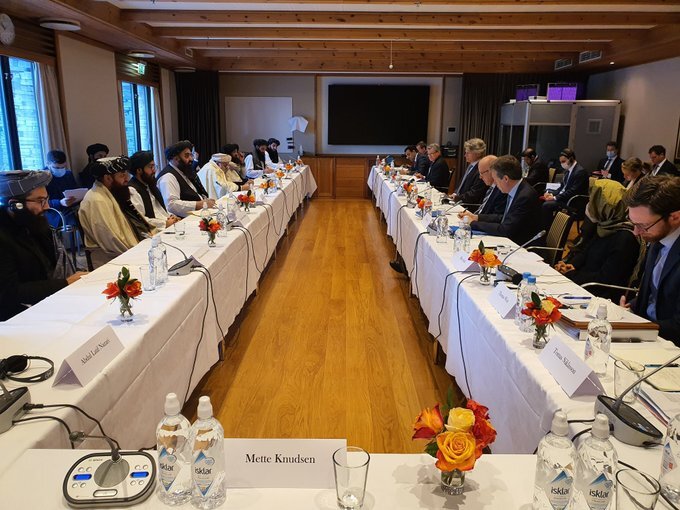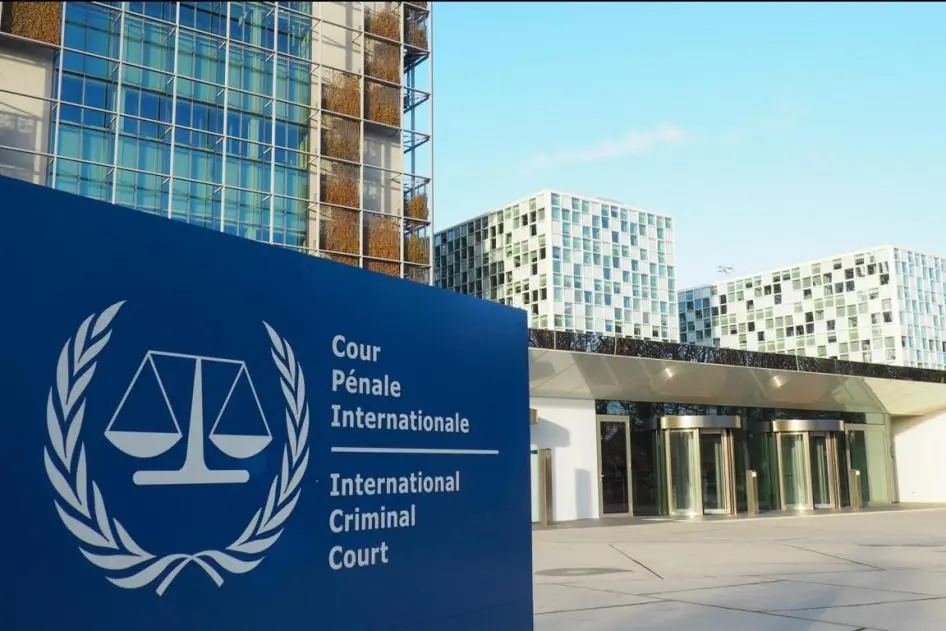Whilst western powers have been engaging with the Taliban-led government following decades of war, they have yet to recognise the new administration.
Qatar joined special envoys from the European Union and the US in participating in talks in Oslo on Monday, with the interim Afghan government over the situation in Afghanistan.
The Gulf state was represented by the Special Envoy of the Minister of Foreign Affairs for Counterterrorism and Mediation in Conflict Resolution, Dr. Mutlaq bin Majed Al Qahtani, at the three-day talks, which kicked off on Sunday.
The meetings focused on the political, security, humanitarian and economic situation in Afghanistan.
Senior IEA delegation led by the FM H.E Mawlawi Amir Khan Muttaqi left for Norway in a special flight of the said country where talks will be held with representatives of various countries & a number of Afghans about humanitarian aid, political, educational & economic issues. pic.twitter.com/YHoLEuM0t0
— Abdul Qahar Balkhi (@QaharBalkhi) January 22, 2022
According to Qatar’s Ministry of Foreign Affairs (MOFA), Al Qahtani also held a separate meeting with acting Afghan Foreign Minister Amir Khan Muttaqi and the US Special Envoy for Afghanistan Thomas West “to discuss matters of common interest”.
“We will continue clear-eyed diplomacy with the Taliban regarding our concerns and our abiding interest in a stable, rights-respecting and inclusive Afghanistan,” tweeted West on Sunday, commenting on the Norway talks.
The meetings in the Norwegian capital come amid a worsening humanitarian and economic situation in Afghanistan, as the caretaker government continues to engage with the west after decades of war, in bid to break its isolation.
Over the past months, countries including Qatar called on the international community to not isolate Afghanistan due to its government, given the severity of the humanitarian situation in Kabul.
Concerns over the humanitarian situation have been further amplified by the international community since the Taliban took over Kabul on 15 August last year, which was followed by the US freezing billions of funds belonging to the Afghan central bank.
According to the World Food Programme (QFP), an estimated 98% of Afghans are not consuming enough food.
No country has officially recognised the new Taliban-led administration since its formation last September, after the militant group seized power.
Civil society involvement
The talks in the Norwegian capital are also attended by Afghan civil society representatives and women’s rights activists, including Hoda Khamosh and Mahbouba Seraj.
Whilst Seraj said she was “hopeful” in the discussions and that the Taliban had “acknowledged and heard” women during the talks, Khamosh reprimanded the participants for maintaining their silence towards the militants.
“[By] remaining silent or tolerating the Taliban, you are partly responsible for these crimes,” said Khamosh, as quoted by AFP.
In Afghanistan, various women felt betrayed by the talks and took to the streets of Kabul to protest the meetings.
“I am sorry for such a country as Norway for organising this summit, sitting with terrorists, and making deals,” Wahida Amiri, an activist protests regularly in Kabul since the Taliban’s return to power, told the AFP.
“It saddens me a lot. Shame on the world for accepting this and opening doors to the Taliban,” she added.
Despite promising a more moderate rule in comparison to the one that lasted between the late 90’s and early 2000’s, Afghan women continue to fear for their lives under the Taliban’s leadership.
Last week, reports claimed that women activists, Tamana Zaryabi Paryani and Parwana Ibrahimkhel, were taken from their homes in Kabul for participating in street demonstrations.
The Taliban, however, denied those reports.
Last year, rights groups and the international community raised concerns over retaliatory killings by the Taliban, following the release of a report by Human Rights Watch (HRW) titled “‘No Forgiveness for People Like You,’ Executions and Enforced Disappearances in Afghanistan under the Taliban“.
Released in November, the report documented the killing or disappearance of 47 former members of the Afghan National Security Forces (ANSF), despite promises of amnesty made by the Taliban in August to those affiliated with the previous administration and rights workers.
Follow Doha News on Twitter, Instagram, Facebook and Youtube







